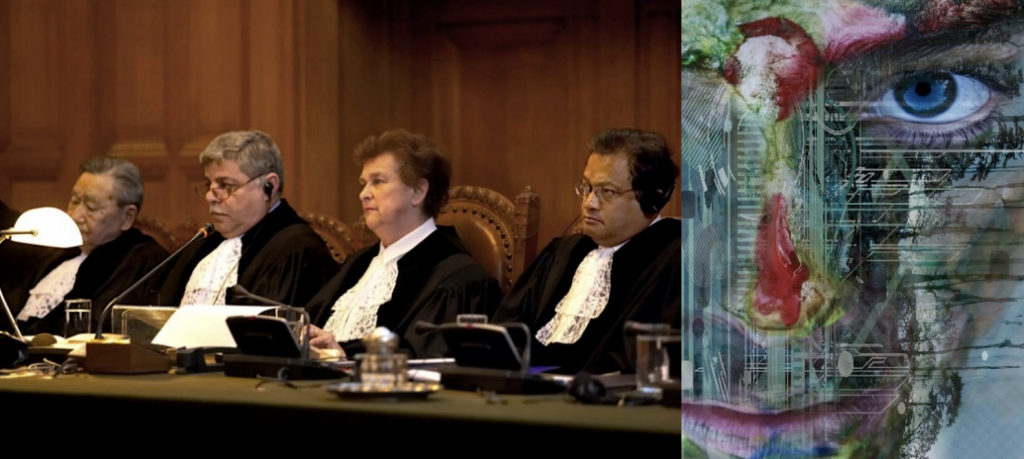In this very special series of exclusive articles for the Property Chronicle, Australian property legend Norman Harker reflects on his extraordinary 50-year life in real estate. He will pull no punches partly because, as he freely admits, Norman has a limited life expectancy of five years from December 2018 due to a diagnosed terminal blood cancer, which he has cheerfully accepted in preference to (in his words) “kicking the bucket without notice”. We are honoured he has chosen us to publish these brilliant, funny and incisive reflections of a lifetime in property.
Chapter 7: No problem! – whatever the language
I was a quick learner. I didn’t need to be told how to tie my shoelaces – I wore slip-ons.
My immediate boss was busy – he’d given birth the week I joined. I later learned that it was his wife who’d given birth. He was there to make up for not being sober at the time of conception.
What you have (left), versus what the boss wants (right):

What the boss wanted was solutions. There were three types of problems:
1. The ones with obvious solutions.
2. The ones with difficult alternative solutions.
3. What I could claim on expenses.
Three types of problems: easy, difficult… and expenses (plus a suggested solution):

Problems where the answer was easy, I referred to briefly in my weekly report. “Their list of branches was all over the place, but our negotiators knew which towns they were in and we’ve captured them all.”
Sometimes I’d get it wrong – Oooops! Once we got as far as the final valuation session and I asked out of curiosity, “What rental have you put on Stevenage?”
Answer: “They haven’t got a branch in Stevenage!”
Me: “That’s funny! I bought a table and chairs there last Saturday. I know I suffer from hallucinations but…” My SNAFU – Situation Normal Another Foul Up.
Never recriminate! But I was never allowed to forget the time I ‘lost’ one of the best shops a client had.
Take ‘parking tickets’ – you couldn’t put those down as a claim. But 120 miles in your car to Bognor and back… as long as my boss knew
The boss doesn’t want problems! (S)he wants solutions and will confirm or reject alternatives or perhaps come up with a variation.
For problems with difficult alternative solutions, I would raise the issue but give my suggested solution. “The client’s lawyers’ title descriptions are not the same as in the old reports – we could just rely on them being right or get new ones. I think we should try and get our lawyers to do them all in our standard format, but that will be very sensitive.”
“Agreed, Norman. These valuations are going into published accounts. They must be based on the right information. I’ll raise it with the MD. We can probably get our lawyers to do the job at the client’s bank rather than at their own offices. That should do it.” That’s why he was paid (and was worth) more than I was!
The most important problem, my expenses, I soon learned how to solve. I’d explain to the boss what I’d incurred and agree how it should be ‘expressed’ so as not to cause issues with the firm’s accountant or auditors. Take ‘parking tickets’ – you couldn’t put those down as a claim. But 120 miles in your car to Bognor and back… as long as my boss knew, that’s what was put down.
Perhaps it is not acceptable, but we were honest with each other and those parking tickets were only incurred because we were late and couldn’t go back the next day.
You, the readers, can be my judges. I’ll plead guilty but insane!
The trial of a valuer – judges (left), and their verdict (right):

Wherever I went, I had problems. They followed me like a bad smell. My bosses used to delight in sending me on some task that would get rid of me for as long as possible.
In Thailand, where we wanted international students, I soon learned to respond in Thai, with something that sounded like ‘mai me panha’ (meaning ‘no problem’). I learned that in 1990 from one of their prime ministers, Chatichai Choonhavan, who used it as his catchphrase – before departing swiftly, as had long been the tendency of Thai prime ministers and still is now.
In Indonesia after the south-east Asia financial collapse, they decided I was just the person to send into the middle of riots to help draft valuation practice standards. As I seemed to be getting away with that, the World Bank asked if I would take on drafting the code of ethics. They knew that was impossible, because a previous team had failed already.
The World Bank asked if I would take on drafting the code of ethics. They knew that was impossible, because a previous team had failed already
But tidak masalah (no problem)! It was easy. I just met the leaders of their valuation bodies and told them I couldn’t possibly draft one. Looks of amazement. What on Earth is this orang bodoh (idiot) wasting our time for?
“I could tell you about structures and content of other countries’ codes of ethics, but you must tell me what you want, and I’ll convert that to words,” I said. They looked like they’d just recovered from long-term constipation.
The previous advisers had told them what to do. With different religion, culture, society and politics, that approach was as popular with them as pork chops. “It’s impossible to work during Ramadan!” Inviting them to ‘break fast’ meals at five-star hotels proved that to be wrong.
With my Netherlands collaborator in our magnum opus – the excelfunctionbible – it’s ‘geen probleem’. The problem isn’t the problem. It’s about thinking in terms of solutions. It’s finding the happy medium.
Solution – the happy medium:

In Australia, which has the misfortune of being my final resting place, the phrase we prefer is ‘she’ll be right’ – or more recently ‘too easy’…







